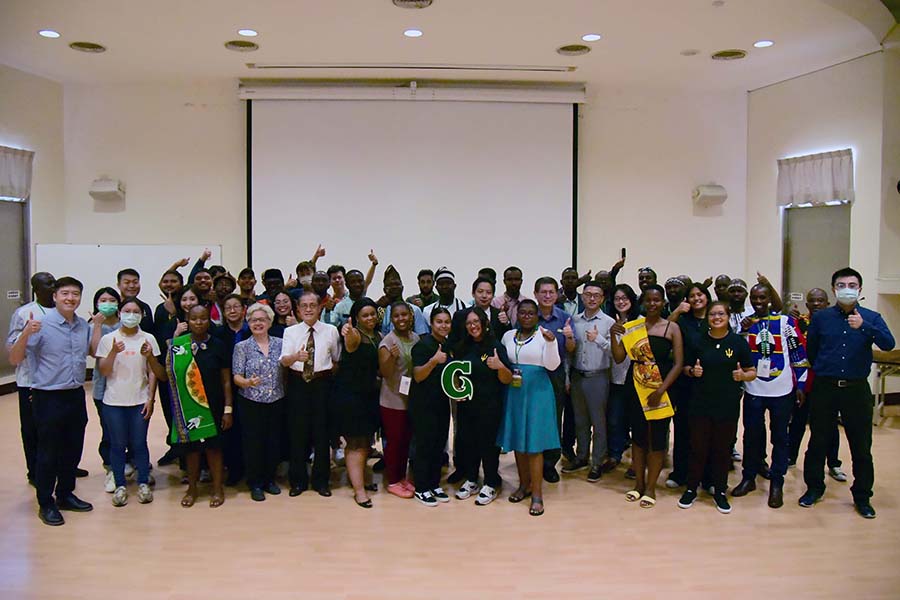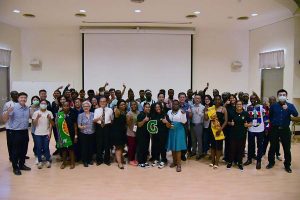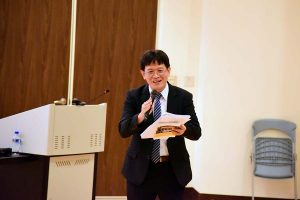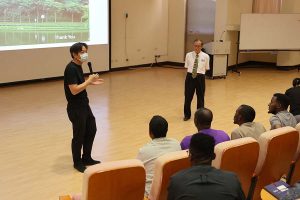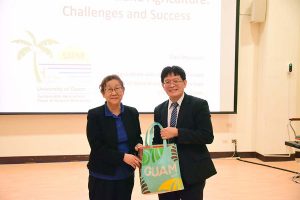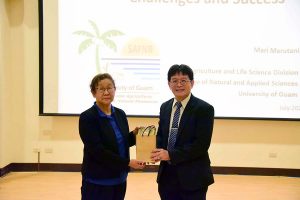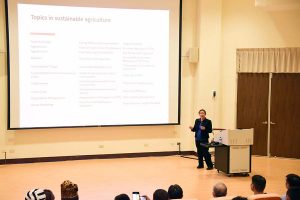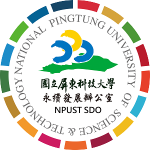On July 4 (2023), the NPUST of College of Agriculture and Office of International Affairs jointly held the “International Sustainable Agriculture Workshop” at the College of Agriculture. During the workshop, discussions were held on issues related to sustainable agriculture, and experiences from South Africa, Eswatini, Somaliland, Nigeria and Guam were shared with the participants.
Offering some remarks, dean Jue-Liang Hsu of the College of Agriculture welcomed everyone and wished them a successful activity, saying that he “hopes the agricultural training and related industry visits will be a fruitful experience for the participating teachers and students.”
Deputy-dean of the OIA, Yuh Tzean, said “through this event, we would like to introduce everyone to the four major development axes of NPUST. These include, “Agriculture Science and Technology”, “Ecological Industry”, “Platinum Society”, and “Sustainable Economy”. We will look at the school’s achievements in sustainable development, and also highlight the university’s outstanding performance on the GreenMetric World University Ranking and in the Times Higher Education Special Edition Journal—both of which use the United Nations’ 17 Sustainable Development Goals (SDGs) as indexes for evaluation.”
During the activity, professors and officials from agricultural universities in South Africa, Eswatini, Somaliland, and Nigeria presented on the current states of agricultural development in their countries, and discussed climate change, pests and diseases, excessive use of herbicides, soil fertility loss, lack of breeding information and other factors lead to poor crop yields. With respect to animal husbandry, the aim is to teach farmers correct nutrition and feeding management, and encourage use of local crops as feed sources to reduce feed costs and avoid other issues. For the conclusion, Dr. Mari Marutani from the University of Guam presented on the topic of “Sustainable Island Agriculture in Guam” and introduced everyone to the history of agriculture in Guam. She shared on the climate, terroir, population changes, and the ebbs and flows of agricultural production on the island and provided everyone with insight on the current approach to sustainable agricultural development they are taking in Guam.
The rich and vibrant content of the workshop attracted the participation of teachers and students at NPUST, as well as the short-term exchange students from the United States and Thailand. The organizers hope that through the activities, they will be able to enhance mutual understanding and create more opportunities for cross-border cooperation on sustainable development in agriculture in the future.




